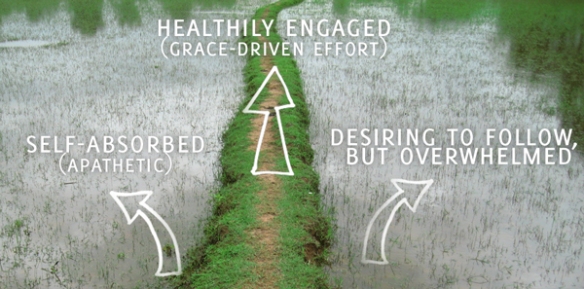Okay, I shall make it personal first: what am I trying to do?
Ask yourself the same.
Together, and personally, there are many goals we could focus our time, energies and talents toward fulfilling. Let’s ask ourselves, what must I be doing? What is my grand purpose in life?
As a believer in Jesus I believe the purpose of all humans is to know and enjoy our Creator, specifically shown through loving and serving one another. Those two directions — vertical, our relationship with God; horizontal, our relationships with one another — are inextricably linked.
The Apostle John puts it this way:
“Whoever claims to love God yet hates a brother or sister is a liar. For whoever does not love their brother and sister, whom they have seen, cannot love God, whom they have not seen.” —1 John 4:20
We cannot see God. Yet we can see people made in His image.
Our neglect in loving God and people is the reason why we feel to urge to renew our resolutions in the new year. We aren’t our true self when we’re living selfishly. It’s also the reason why more than 80% of us will fail in these new resolutions. (And the other 20% are pretending we ‘did it.’)
 The Godward life is lived in the service of others. Yet the paradox is that this service is done not in order to earn their approval, but to show His approval that we already have in Christ. As my five-year-old would say, a paraphrase of his favorite verse of Scripture: “Jesus came to serve” (Mark 10:45). If we want to be great, we must become a servant like Him.
The Godward life is lived in the service of others. Yet the paradox is that this service is done not in order to earn their approval, but to show His approval that we already have in Christ. As my five-year-old would say, a paraphrase of his favorite verse of Scripture: “Jesus came to serve” (Mark 10:45). If we want to be great, we must become a servant like Him.
If you’re daily in fear of not living up to the demands of your boss, spouse, children, even ‘culture’ in general, then pleasing God is not your goal. Something else has become your god, and you will serve it relentlessly. It will prove to be a terrible substitute for the good Master. (As Bob Dylan famously sang, “You gotta serve somebody…”) Why do you and I feel the need to impress others and win their approval?
Back to question at the top: What are you trying to do? More to the point: Who are you seeking to serve?









